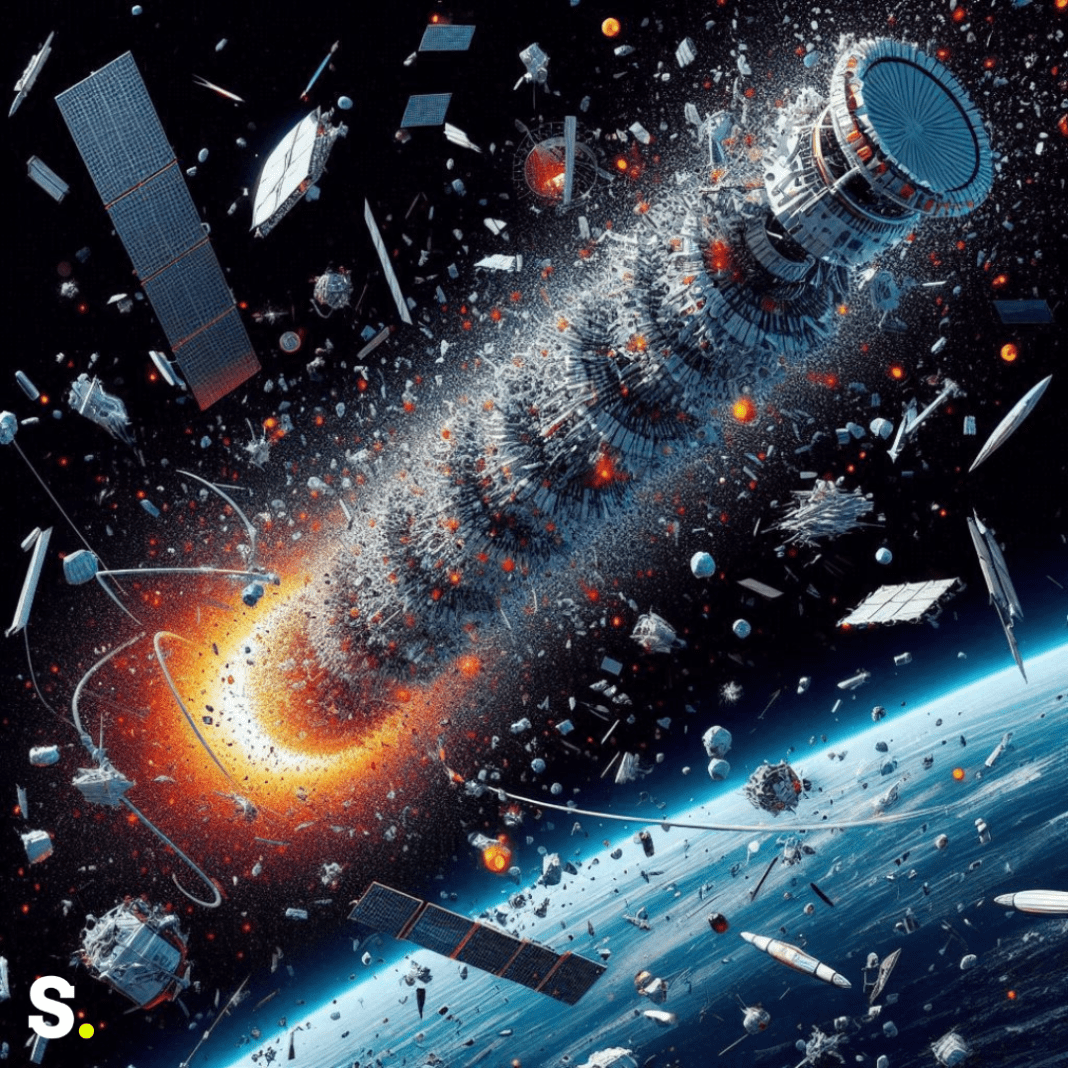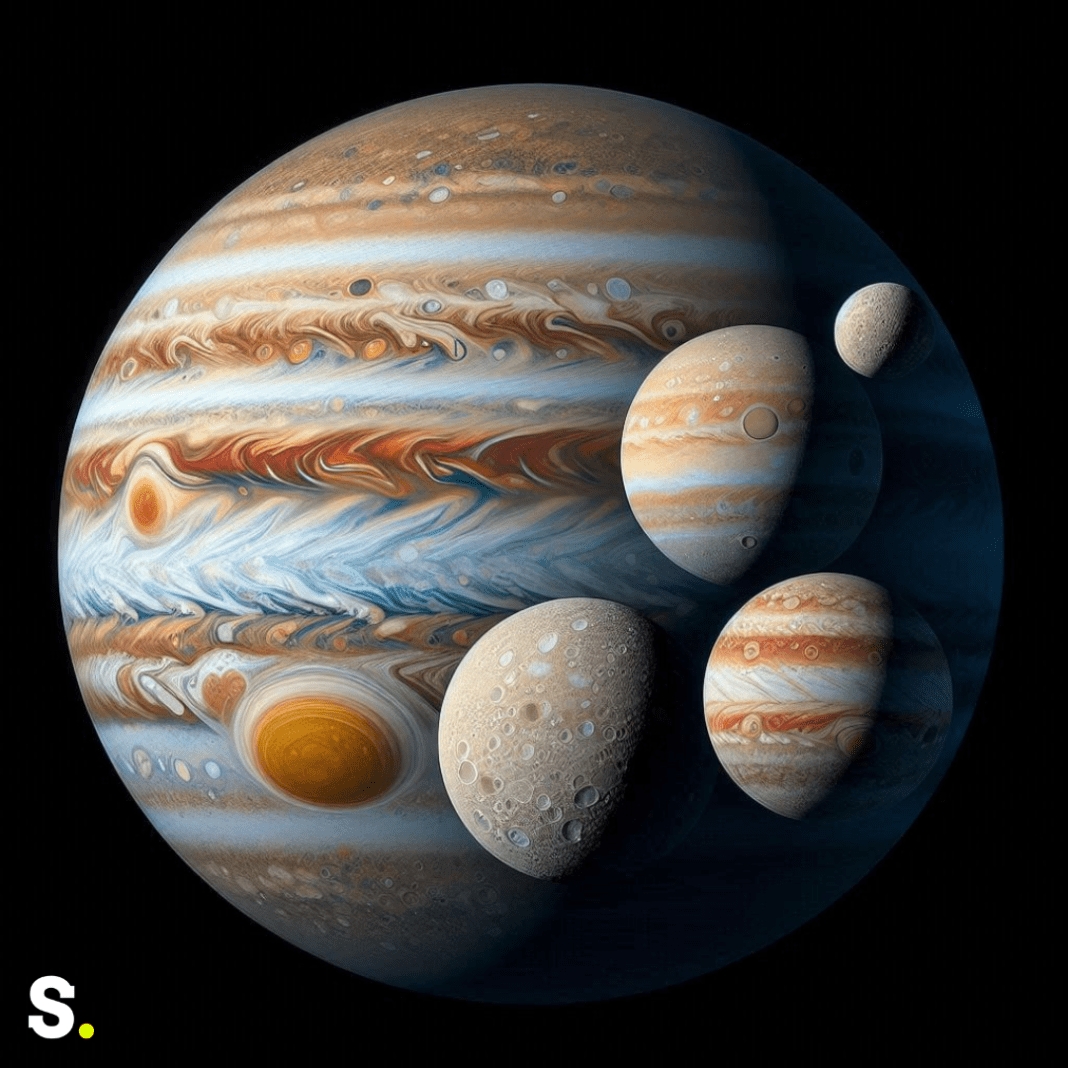This week, a major space event unfolded as a Chinese rocket stage shattered in orbit, producing over 700 pieces of debris. This unexpected fragmentation has raised serious concerns about the safety of satellites and other objects in Earth’s orbit. The resulting debris poses a significant risk to approximately 1,000 satellites and various space assets, potentially leading to dangerous collisions in the crowded space environment.
Rocket Stage Breakup and Debris Formation
On Tuesday, the Chinese Rocket stage in question, part of a mission by Shanghai Spacecom Satellite Technology (SSST), suffered a catastrophic failure shortly after launch. The rocket was carrying a payload of 18 new internet satellites intended to establish a new communications network. However, instead of completing its mission successfully, the rocket stage broke apart, resulting in the creation of a vast cloud of space debris.
The debris from this rocket stage consists of over 700 fragments that now orbit Earth at high velocities. This disintegration occurred due to structural failure or other technical issues during or shortly after the launch. The fragments are spread out over a wide area, increasing the risk of collisions with other objects in space. Space debris is a significant concern because even small pieces can travel at speeds up to 17,500 miles per hour (28,000 kilometers per hour), making them capable of causing substantial damage to satellites and spacecraft.
Impact of Chinese Rocket Debris on Space Environment
The presence of over 700 new pieces of debris from the Chinese rocket stage in space intensifies the risks for existing satellites and space missions. Earth’s orbit is already crowded with various objects, including operational satellites, defunct satellites, and other fragments from previous collisions. This environment, often referred to as “space junk,” is further complicated by the new debris from the Chinese rocket, posing a significant risk to satellite operations and other space assets.
The new debris cloud resulting from the Chinese rocket stage significantly heightens the risk of collisions. Even tiny fragments from the Chinese rocket can cause severe damage due to their high speed. When debris from the Chinese rocket stage collides with a satellite, it can lead to a cascade effect, where the collision generates even more debris, further complicating the space environment. This phenomenon is known as the Kessler Syndrome, where a self-reinforcing chain reaction of collisions could be triggered by the increased density of objects in low Earth orbit.
Space agencies and satellite operators around the world are actively tracking the debris from the Chinese rocket stage to predict and prevent potential collisions. They use sophisticated tracking equipment to trace each piece of debris’s position and path. When a high-risk collision involving debris from the Chinese rocket is predicted, operators might take measures such as adjusting satellite orbits to avoid potential impacts. The increased debris density from this incident underscores the critical need for effective space traffic management and debris mitigation strategies.
Shanghai Spacecom Satellite Technology’s Launch
The rocket stage that broke apart was part of a mission by Shanghai Spacecom Satellite Technology, a company focused on advancing space communications. The launch was intended to deploy 18 new internet satellites as part of a broader plan to create a new communication network. This network aims to rival SpaceX’s Starlink constellation, which currently has a substantial presence in space and provides global internet coverage.
The mission was an ambitious step for Shanghai Spacecom, aiming to establish a competitive communication system in space. But the planned improvements have been eclipsed by the unanticipated rocket stage breakdown. Instead of focusing on the new capabilities offered by the satellites, the space community is now grappling with the immediate consequences of increased space debris and its potential impact on space operations.
In summary, the fragmentation of the Chinese rocket stage has led to the creation of a significant amount of space debris, endangering existing satellites and other space assets. The situation highlights the growing challenge of managing space traffic and mitigating debris risks. As space agencies and satellite operators work to address these concerns, the incident serves as a stark reminder of the complexities and dangers associated with space exploration and satellite deployment.




